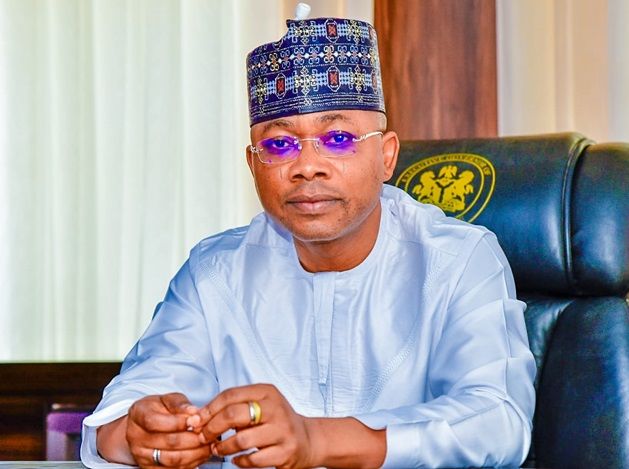X-raying Ododo’s developmental strategies in Kogi

By Thompson Yamput
Carved out of Benue and Kwara States in 1991, Kogi is one of the youngest states of the federation.
As the case with the creation of other states, which dates back to the pre-civil war era, the creation of Kogi was meant to accelerate the development of the area.
In spite of its strategic location and the confluence region, Kogi remains one of the underdeveloped parts of the nation.
From its first Military Administrator, Danladi Zakari, to the immediate past Governor, Alhaji Yahaya Bello, Kogi has always yearned for accelerated development in order to catch up with the rest of the country.
The return to democratic governance offered many states the opportunity to advance their developmental strides.
Unlike the military era under which the state was created, civilian administrations created an opportunity for the states to be led by indigenes who understand the developmental needs of their people; Kogi is not an exception.
On Nov. 11, 2023, Alhaji Ahmed Ododo succeeded Bello as the governor of Kogi.
Ododo, who contested on the platform of All Progressives Congress, defeated Alhaji Murtala Yakubu-Ajaka of Social Democratic Party.
Ododo inaugurates of 105 cars donated to security agencies in the LGAs of the state
As Nigerians celebrate a watershed in their political history, the question remains: To what extent has democracy met the yearnings of the people of Kogi?
Analysts also ask: What are the failings of previously elected governments, and to what extent is the incumbent correcting those lapses in governance? Has Ododo truly fit the shoes left behind by his political benefactor, Bello?
Mr Ismaila Isah, Special Adviser on Media to the Governor, says Ododo emerged at the helm of Kogi affairs at the right on time.
“Ododo’s emergence is timely and instrumental in driving key progress across the state; he came at the right time to consolidate on the achievements of the immediate past administration.
“The ongoing infrastructure across the three senatorial districts and the administration’s fairness, transparency are all inclusive.
“His administration’s commitment to accountability seemingly blocked financial leakages, allowing public funds to be directed toward meaningful projects.
“His government has zero tolerance for corruption; state resources are now being directed towards projects that truly benefit the people.
“These include road construction, rehabilitation of schools, and improvements in healthcare as evidence of the government’s development agenda.
“These were obviously a renewed focus on human capital, education, and health,” he said.
The Commissioner for Finance and Economic Planning, Ashiwaju Idris, echoes the same view.
He explained that the N98.8 billion debts so far paid off.
The bill included loans that dated as far back as the regime of the Alhaji Ibrahim Idris and N50 billion bailout fund granted the administration of Captain Idris Wada.
As Nigerians celebrate return to democracy, Mr Kingsley Fanwo, the State Commissioner for Information and Communications, says Kogi indigenes have every reason to celebrate with remarkable progress in healthcare, education and other key sectors.
Fanwo said some notable achievements of the governor included Health Insurance Scheme, Primary Healthcare Development, free medical services, disease prevention, and health promotion.
He said one major step towards driving economic growth initiated by the Kogi Government was the recent securing of a landmark partnership with Hunan Province, China.
According to him, the ultimate goal is to make Kogi the preferred investment destination in Nigeria.
“The partnership aims at enhancing development across key sectors, including agriculture, mining, and industrialisation.
“The collaboration, according to him, was formalised during a high-level visit by Gov. Ahmed Ododo to China.
“This is masterstroke that will change the investment narrative of Kogi.
“The partnership with Hunan will boost the state’s agricultural and solid mineral sectors while attracting foreign investments and advancing collaboration towards the realisation of the Ajaokuta Industrial Park.”
On health, the commissioner said that more than 220,000 Kogi residents were now benefiting from the state’s Health Insurance Scheme, making healthcare more accessible and affordable.
He disclosed that the state government had invested over N7 billion in revitalising 88 Primary Healthcare Centres (PHCs) across the 21 Local Government Areas, aiming to elevate over 200 primary healthcare institutions to functional level-2 health facilities.
“Kogi’s healthcare sector is undergoing significant transformation.
“Ododo’s administration is remodelling over 200 PHCs across the state with most of the funding from state resources.
“These centres are strategically located to reach every community and ward, equipped with solar-powered water systems and staff quarters,” Fanwo said.
According to Fanwo, the BelloCare initiative supports pregnant women, children under five, and the poorest of the poor.
He stressed that Ododo’s commitment to healthcare had brought renewed hope to the residents of Kogi.
As the state right in the middle of the country, Kogi has had its fair share of security challenges faced by many parts of the country.
Some of the worst hit areas are: Yagba West, Yagba East Local Government Areas in the Kogi West Senatorial District and in Ofu and Dekina LGAs in the Kogi East Senatorial District of the state.
In response, the Ododo administration says it has done a lot to protect the lives and property of the citizens.
Retired Commodore Jerry Omodara, Security Adviser to Ododo, said the strategies adopted by the government were working.
According to him, the state currently adjudged as the most peaceful in the North-Central.
Omodara pointed out that banditry was orchestrated by armed elements, consisting of natives and foreign elements that infiltrated the state from parts of the country using cattle routes that passed through the state.
“This group involves in highway banditry, rural banditry, kidnapping for ransom and cattle rustling.
“Kogi is home to diverse ethnic groups, and various disagreements among the groups often resulted in violent conflicts, especially over land, fish ponds and political power; the ethnic rivalry sometimes escalates into violent clashes that disrupt peace and stability.
“This has been well managed as there is no existing serious communal conflict in the state; the government made proactive measures through stakeholders, particularly traditional rulers in all communal cases.
“The recent incursion of bandits is cause by operations in the far North, pushing many of the fleeing bandits to the north central; but the Kogi Government, under the leadership of Ododo, has adopted a zero-tolerance policy towards criminality.
“The government has intensified security operations, engaged local hunters/ vigilantes, and collaborated with federal security agencies to dismantle these criminal networks.’’
He said that state government was also exploring alternatives to avert the breach of peace and security with the establishment of a strong intelligence outlets in the 239 wards of the state.
Omodara said Ododo had also directed and gazetted the employment of 2,752 personnel of Kogi Vigilante Service into the Kogi Civil Service Commission and recruitment of 1,050 hunters across the 21 LGAs with strong logistic support.
“We also have cooperation with neighbouring states in joint operations, engagement of youths in meaningful self-development and empowerment to reduce crime in the state.
“This, has led to several bandits being eliminated in several clearance operations, while the security agencies have continued to arrest criminal elements in the state, ” Omodara said.
Another area Kogi has made tremendous investment is in the education where Ododo recently ordered the release of N661 million to cover West African Examinations Council (WAEC) fees for 18,734 students in public secondary schools across Kogi State on Oct. 29, 2024.
Mr Wemi Jones, the state Commissioner for Education, disclosed that the governor also approved the release of N145, 476,984 for the payment of Common Entrance and First School Leaving Certificate of 25,100 pupils in public primary schools.
“On February 4, Ododo also approved the sum of N215,220,000 for Basic Education Certificate Examination (BECE) for 30,000 students and an additional N181.7m for Joint Admissions Matriculation Board (JAMB) forms for 18,334 students in public schools, ” Jones said.
Ododo’s supporters say his administration has also done creditably in the area of infrastructure.
They point at the recent visit by President Bola Tinubu to the state, during which he inaugurated several projects to buttress their position.
Tinubu, who was represented by Vice-President Kashim Shettima, inaugurated several projects executed by Ododo to mark his one year in office.
Some of the projects inaugurated on Jan. 28 were 9 km Zone 8-Zango Daji-Kaduna Junction Road and the 5.5 km Zone 8-Crusher Road.
Other projects are 350-bed hostels for both males and females at Confluence University of Science and Technology (CUSTECH), a demonstration farm, two new faculties at CUSTECH, and Primary Health Centres (PHCs) spread across the state.
Only recently, on June 2, the state governor inaugurated the construction of 7.2 Idah township roads.
Nonetheless, some critics say the governor has not done enough to deserve the accolades he is getting.
Some Kogi frontline opposition members want Ododo to be in control and more prudent with public funds by curbing the excessive powers of the those in charge of the state’s finances.
A human rights advocate, Mr Usman Okai, said it was unacceptable that an individual wields so much influence over public funds.
“Ododo must act swiftly to restore confidence in the state’s financial system.”
He also wants the government to urgently address the deteriorating state of education and the dwindling civil service workforce in the state.
Okai decried what he described as the neglect of primary and secondary schools across Kogi, describing them as dead and in desperately need of intervention.
“Some people have been working for over six years without receiving salaries.
“I challenge the state government to disclose the total number of workers and the wage bill for both state and local government employees to counter my claims,” he said.
Similarly, the Executive Director, Cocoa Research Institute of Nigeria (CRIN), Dr Patrick Adebola, wants the Ododo administration to focus more on agriculture since it is the main occupation of Kogi people.
More so, observers say the administration should also look at the solid minerals sub sector as a veritable means of industrialising the state.
While much still needs to be done, stakeholders say Ododo has creditably acquitted himself so far.(NANFeatures)
News Agency of Nigeria (NAN)











